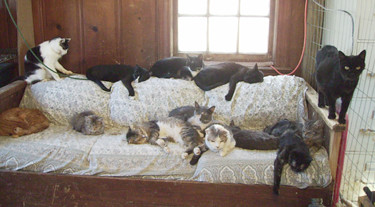Not getting a good night’s sleep? You’re not alone. The centers for Disease Control and Prevention estimate that about million American workers daily cry out, “I can’t sleep!” Sleep deprivation is a serious health problem. According to a study done by the University of Surrey, lack of sleep directly causes over 700 genes to alter in your body.
So you know you need sleep. What can you do beyond complaining, “I can’t sleep”? Quite a lot, actually. If you follow these tips and still have problems getting a good night’s sleep, please see a medical professional.
Make Your Bedroom a Sleep Sanctuary

Your bedroom should be a sleep cave. Your bed should only be used for sleep (and romance). This way your subconscious will associate the bedroom with nothing but sleep. Remove anything that can tempt you to stay awake or get you upset. Put the television and laptop away. Some people swear they cannot fall asleep without the TV going. It’s worth shutting off the TV and trying out a sound therapy system that can provide background noise to calm the mind without the glow from the TV that can wreak havoc with sleep.
Options can be as simple as using a clock radio turned down to a barely audible level. If you want to try something more elaborate you can try something like SleepPhones ear phones or a sound system that has been designed to create soothing sounds that will have you nodding off into a deep sleep faster than a late night infomercial.
Put up black-out curtains to get rid of light that can keep you awake. If your sleeping partner snores loudly or keeps waking you up every night, consider sleeping in another room so you can get the vital rest you need. We’ve also heard people tell us that ear plugs have saved their marriage! Also consider lowering the temperature of your bedroom. Most people find it easier to fall asleep in a cool room than a warm one. Research suggests the best sleeping temps fall between 65-72 degrees. A Chilipad can help you dial in the perfect sleeping temperature.
Pre-bed Rituals

Our days are full of stress and excitement. It can be difficult to get off the emotional roller coaster and calm down enough to become drowsy. Develop some pre-bed rituals one to two hours before bedtime to help your body and mind transition from an active day to a restful night.
These rituals include:
- Eat a light snack combining protein and carbohydrates, such as peanut butter and crackers or cereal and milk. Avoid heavy meals or junk food binges.
- Stop consuming all caffeinated foods and beverages at least four hours before your bedtime; test this until you have a good handle on how long before bedtime you need to cut out the caffeine.
- Taking a relaxing warm shower or bath and use aromatherapy to help you reach a calm, drowsy state.
- Turn off the television to help become drowsy.
- Turn off lights in the home as you get close to your bedtime. The presence of artificial light can trick the brain into thinking that it’s daytime. This makes it harder to sleep. A dark room helps with melatonin production and when melatonin is plentiful sleep is much more likely to occur.
What You Don’t Want to Do
You don’t want to drink alcohol before going to bed. Although alcoholic beverages can make you drowsy to fall asleep quickly, you will not stay asleep. Alcohol can also prevent sleepers from experiencing all of the stages of sleep that you need to go through in order to have a good night’s sleep. You’ll just wind up waking up exhausted.
You also want to avoid self-medicating with over the counter medicines that you know make you sleepy, such as over the counter decongestants. These medications can also help prevent you from getting enough quality sleep. Over time, many people find that they need to take more and more of a drug in order to get the same effect.
Have you tried any of these suggestions and had success with them? How about other things you’ve done to address a bout of insomnia? Let us hear all about it in the comment section!
Josh Tal is the Operations and Public Relations Manager for www.CityofSleep.com , an online sleep resource center. Josh is a boarded sleep technician (RPSGT) by trade. In addition, he is a PhD student in Clinical Psychology at Palo Alto University with a focus on Women's Health and Neuroscience through Stanford University. He works as a research assistant at Stanford University's Late-Life and Lifespan Approach to Neuropsychiatric Disorders Lab.


